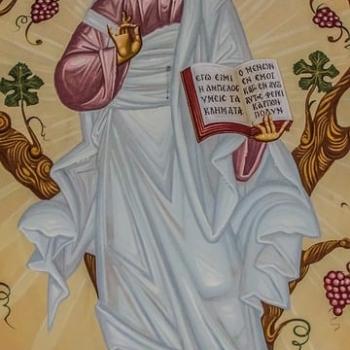
“There is no such thing as Judeo-Christian.” So says Father Calvin Robinson, a member of the Anglican Catholic Church.
Is Father Robinson correct? In this paper, I will argue that he is not and that the term Judeo-Christian is vitally important to understanding the Bible and the morality that it espouses. However, it may be beneficial first to discuss what the term Judeo-Christian means.
Definitions
The term can refer to various topics, often with widely diverging meanings. However, Judeo-Christian generally refers to the shared history, heritage, ethics, and faith tradition between Judaism and Christianity.
Owing to space constraints, I will touch upon there of these topics: the shared history, ethics, and religious beliefs of the Jewish and Christian faiths.
A Shared History
Judaism is the oldest of the monotheistic faiths in the Abrahamic tradition, which includes Christianity and Islam. The central principle of the monotheistic faiths is the belief in the one God: the all-knowing, all-powerful, and ever-present creator of the universe.
The term “Abrahamic tradition” provides a thread that runs through both Judaism and Christianity. With the exception of Moses, no Old Testament character is mentioned more in the New Testament than Abraham. This is not without good cause.
Abraham is considered the father of the Jewish nation as its first patriarch. He is the father of Isaac, who in turn fathered Jacob, the father of the Twelve Tribes of Israel. God promised the land of Israel to Abraham’s children, and this constituted the first claim of the Jews to Israel.
Abraham’s importance and impact in redemptive history are seen in Scripture and are not lost on the New Testament authors. James refers to Abraham as “God’s friend” (James 2:23), a title used by no one else in Scripture. Believers in all generations are called the “children of Abraham” (Galatians 3:7).
Simply put, Judaism provides the historical and theological foundation for Christianity. Said differently, Christianity did not appear ex nihilo but is the fulfillment of Judaism. There are at least two ways to support this perspective.
The first way is by connecting the numerous Old Testament prophecies concerning the Messiah to Christ. Estimates vary between two hundred to four hundred and fifty prophecies that Christ fulfilled. (See Edersheim, Alfred. The Life and Times of Jesus the Messiah. 1883).
The second way of seeing Catholicism as the fulfillment of Judaism is by using Christ’s own words. “Do not think that I have come to abolish the law or the prophets. I have come not to abolish but to fulfill.” (Matthew 5:17).
Here, Jesus claims that the Old Testament (the law and the prophets) is being fulfilled in His person. The law being referred to is the Torah, which is the first five books of the Old Testament. The Torah includes the basis of the Judeo-Christian ethic – the Ten Commandments.
A Shared Morality
Perhaps the defining characteristic of the Judeo-Christian tradition is its shared morality. To speak of morality is to speak of human conduct in so far as it is freely subordinated to the ideal of what is right and fitting.
If morality is to be distinguished from opinion, it must refer to the conformity or nonconformity of a human act with an objective moral standard. Additionally, the act must be independent of the person’s responsibility for the action. For example, taking what belongs to another without permission is objectively wrong, even though it is done without awareness of its wrongness.
Objective morality is knowable to human beings by reason and by revelation. That is to say that from a biblical and philosophical perspective, our knowledge of right and wrong can be obtained by the light of reason alone or by divine revelation.
An example of morality understood by reason alone would be Immanuel Kant’s categorical imperatives. For instance, “Act only in accordance with that maxim through which you can at the same time will that it become a universal law.” (Kant, Immanuel. Critique of Pure Reason. 1899).
Put differently, whatever one does should be permissible for everyone else. If I steal, everyone should be allowed to steal. Obviously, this would be untenable for society.
When considering a Judeo-Christian morality predicated upon revelation, we must begin with the Ten Commandments. Here, we have moral precepts not developed by human reason but rather promulgated by divine revelation. The Sermon on the Mount is another example of divine revelation being the source of moral teaching.
Theological Binds
In addition, there are several theological principles shared among Jews and Catholics.
As indicated above, both religions trace their history to Abraham, and both faiths are monotheistic – believing in the existence of one eternal God. The Judeo-Christian tradition also recognizes human beings’ inherent dignity and moral worth. At the heart of this concept is the imago dei – the belief that humans are made in the image of God.
A corollary of imago dei belief is care for the poor, the weak, and the oppressed. (Compare Isaiah 1:17 and Matthew 25:40).
The last primary theological/religious principle that binds Judaism and Catholicism is that both faiths are covenant-based. The four covenants of the Old Testament (Noahic covenant, Abrahamic covenant, Davidic covenant, and the Mosaic covenant) can all be seen as laying the foundation for the new covenant through Jesus Christ.
At various places, the New Testament seeks to connect Christ and these Old Testament covenants. For example, Galatians 3:16 refers to Abraham, and Luke 1:31-33 refers to the Davidic covenant—finally, Christ’s words in Mark 14:24 echo Moses’s words in Exodus 24:8.
Conclusion
I want to conclude by giving Father Robinson the benefit of the doubt. I suspect his comments are motivated more by political ideology than theological realities.
In some sense, Father Robinson’s statement that there is no such thing as Judeo-Christian is a form of Marcionism. The Marcion heresy (named after Marcion of Sinope) sought to uncouple or remove Christianity from any element of Judaism.
In this essay, I have sought to show what Father Robinson seeks to deny – the existence of Judeo-Christian tradition. In my humble opinion, any comprehensive understanding of Christ and Catholicism requires some knowledge of Judaism and the Old Testament, and any effort to deracinate the two does a grave injustice.













